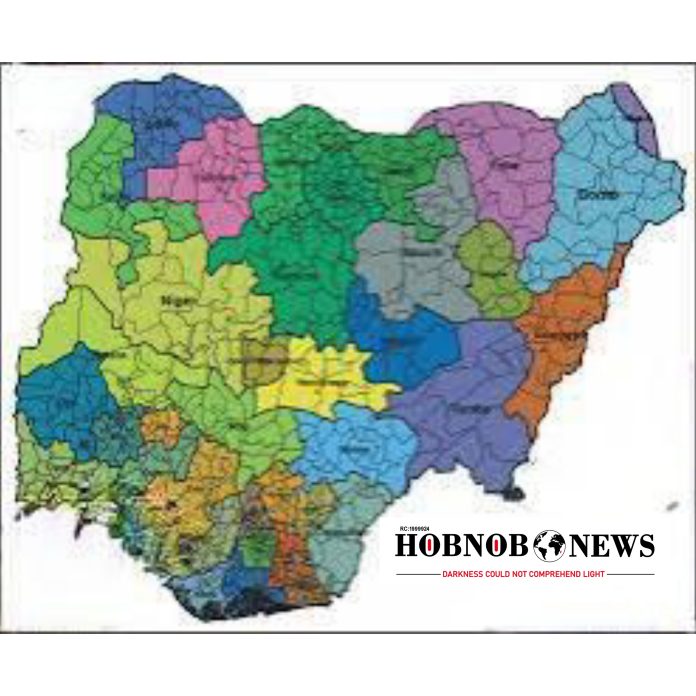Nigeria’s Local Governments (LGA) will begin receiving direct allocations from the Federation Account starting next month, following the implementation of a landmark Supreme Court judgment.
This marks a major shift in local government finance, with allocations beginning from this month’s disbursement. The decision follows the July 11 judgment granting financial autonomy to LGAs, ending delays in its enforcement.
The Federation Account Allocation Committee (FAAC) will oversee the direct allocation, which aims to provide LGAs with the financial independence needed to operate without interference.
A source confirmed that the process would be fully operational by January 2025, although some councils have already begun receiving their allocations directly.
“A few LGAs have already started receiving their direct allocations, but all 774 LGAs will fully start receiving theirs from January 2025. Our committee will reconvene in January to review progress and finalize measures,” the source explained.
This move is seen as vital for empowering local councils to perform their constitutional duties effectively. However, it also addresses governors’ resistance, as some have been reluctant to break the state/local government joint account, through which council allocations are traditionally paid. “Our January 2025 meeting will also address the actions of governors attempting to undermine the autonomy of democratically elected LGA chairmen, deputies, and councillors,” the source stated.
Recent actions in some states have shown resistance to the Supreme Court ruling. In Edo State, for example, the State House of Assembly suspended democratically elected local government officials for failing to submit their financial statements. “It is highly undemocratic for governors to dissolve elected LGAs. Such actions undermine the autonomy granted to local governments,” the source added.
The Inter-Ministerial Committee, which is overseeing the implementation of the judgment, includes key government figures such as Secretary to the Government of the Federation (SGF) George Akume, Coordinating Minister of the Economy Wale Edun, and Attorney-General Lateef Fagbemi. President Bola Ahmed Tinubu has expressed strong support for financial autonomy for LGAs.
Attorney-General Fagbemi has warned that governors failing to comply with the ruling could face legal consequences. “Local government autonomy is meant to empower the grassroots, not enrich individuals. Any chairman found guilty of diverting funds will face severe legal consequences,” Fagbemi said.
Some states, however, have attempted to bypass the judgment. Anambra State, for example, passed a law requiring local councils to remit part of their allocations into a state-controlled joint account. Governor Chukwuma Soludo defended this as necessary for transparency, but critics argue it undermines the court ruling. In contrast, Nasarawa State aligned with the ruling by abolishing joint accounts and restructuring its local government system. Governor Abdullahi Sule signed the bill to support grassroots financial independence.
The Supreme Court judgment mandates that councils must be led by democratically elected officials before being eligible for direct allocations from the Federation Account. In compliance, all states have conducted elections, ushering in newly elected local government chairmen and councillors. The Senate has also called for full compliance with the ruling and recommended constitutional amendments to clarify ambiguities in Section 162(6) of the 1999 Constitution, which created the state/local government joint accounts. Senate President Godswill Akpabio emphasized the need for a clear framework to enforce local government autonomy.
Aminu Muazu Maifata, the former president of the Association of Local Governments of Nigeria (ALGON), urged council chairmen to use the direct allocations effectively for grassroots development. “I honestly expect them to work towards improving the lives of the people at the grassroots. I expect them to channel those resources towards implementing laudable programmes and projects as well as tackling challenges,” Maifata said. ALGON has already provided a template for managing FAAC allocations.
Maifata, a former chairman of Lafia LGA in Nasarawa State, also stressed the need to address key issues like insecurity, water shortages, and infrastructure gaps. “These are the basic needs of the rural population,” he noted. He assured that council leaders should have no difficulty fulfilling their constitutional duties with the resources now at their disposal. “I honestly expect them to work towards improving the lives of the people at the grassroots.”
Additionally, Maifata highlighted the importance of capacity building for local government officials. “I expect them to undertake capacity building of the legislative arm and the executive of various local governments across the country. I expect them to bring skillful resource persons that will speak on issues that will strengthen local government administration.”
The Supreme Court judgment and the implementation of financial autonomy for local governments are expected to transform Nigeria’s local governance structure, enabling councils to provide essential services and strengthen grassroots development.

